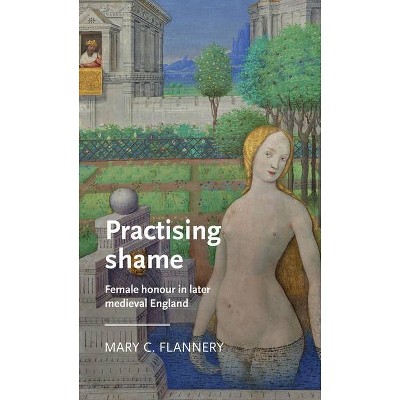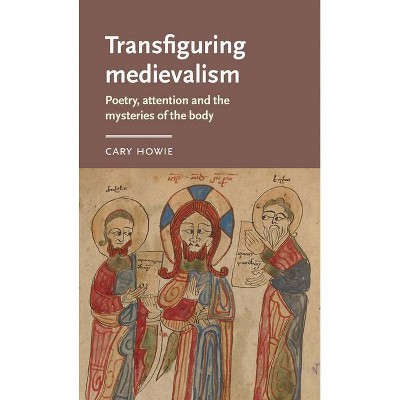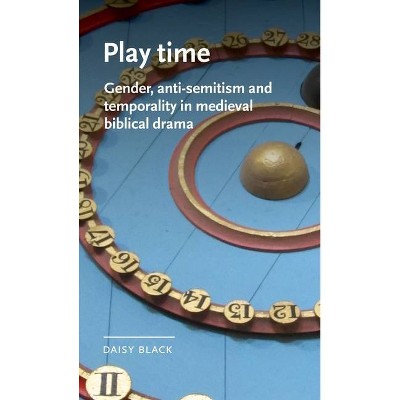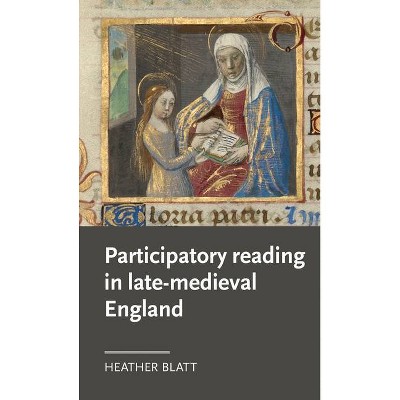Practising Shame - (Manchester Medieval Literature and Culture) by Mary C Flannery (Hardcover)

Similar Products
Products of same category from the store
AllProduct info
<p/><br></br><p><b> About the Book </b></p></br></br><i>Practicing shame</i> explores how the literature of medieval England encouraged women to secure their honour by cultivating hypervigilance against shame. The book transforms our understanding of the construction of femininity in the past and offers a new framework for thinking about honourable womanhood now and in the years to come.<p/><br></br><p><b> Book Synopsis </b></p></br></br><i>Practicing shame</i> investigates how the literature of medieval England encouraged women to safeguard their honour by cultivating hypervigilance against the possibility of sexual shame. A combination of inward reflection and outward comportment, this practice of 'shamefastness' was believed to reinforce women's chastity of mind and body, and to communicate that chastity to others by means of conventional gestures. The book uncovers the paradoxes and complications that emerged from these emotional practices, as well as the ways in which they were satirised and reappropriated by male authors. Working at the intersection of literary studies, gender studies and the history of emotions, it transforms our understanding of the ethical construction of femininity in the past and provides a new framework for thinking about honourable womanhood now and in the years to come.<p/><br></br><p><b> From the Back Cover </b></p></br></br>How can one know if a woman is honourable? In medieval culture, female honour rested most heavily on one thing: sexual continence, or chastity. But how could one be absolutely sure that a given woman was chaste? <i>Practising shame</i> demonstrates that, in the literature of medieval England, female honour was a matter of emotional practice and performance - it required learning how to 'feel' in a specific way. In order to safeguard their chastity, women were encouraged to cultivate hypervigilance against the possibility of sexual shame through a combination of inward reflection and outward comportment. Often termed 'shamefastness', this practice was believed to reinforce women's chastity of mind and body, and to communicate that chastity to others through a combination of conventional gestures. At the same time, medieval anxiety concerning the potentially misleading nature of appearances rendered these gestures suspect - if good conduct could be learned, then it could also be counterfeited. <i>Practising shame</i> uncovers the paradoxes and complications that emerged from emotional practices linked to female honour, as well as the unexpected ways in which those practices could be reappropriated by male authors. Written at the intersection of literary studies, gender studies, and the history of emotions, this book transforms our understanding of the ethical construction of femininity in the past and provides a new framework for thinking about honourable womanhood now and in the years to come.<p/><br></br><p><b> Review Quotes </b></p></br></br><br>'This is a timely book entering the field at a moment when the study of the history of both sex and emotion is suddenly exploding, and when greater attention is being paid to embodied experience, not least of emotion. <i>Practising shame</i> will be of interest to those exploring these issues across time and place because it both offers an account with unnerving relevance for today and provides a successful model of how to answer some of these questions within a particular historical moment.' Katie Barclay, <i>Journal of British Studies</i> 'Flannery confronts the similitude between medieval and contemporary expectations and denigrations head-on. In so doing she has written a powerful and scholarly work that highlights both the relationship between interiority and outer behaviour, and the textual communities which have for so long created particular and gendered visions of identity.'<i> Megan Cassidy-Welch, Emotions: History, Culture, Society</i> 'To say that Mary Flannery's <i>Practising shame </i>is timely would be an understatement. Through close analysis of popular and understudied texts, Flannery gives the reader a thorough tour of the double bind that is <i>shamefastness</i>, a bind that encouraged women to practice humility and yet, simultaneously, excoriated them for being false practitioners of shamefastness, as the practice was an obstacle for men's lust...In our own moment, when the integrity of women's testimony has stood at the center of high-profile trials and convictions, Flannery's book reveals how deeply this ideological misogyny is embedded.' Christopher Michael Roman, <i>Studies in the Age of Chaucer </i> 'A powerful and scholarly work that highlights both the relationship between interiority and outer behaviour, and the textual communities which have for so long created particular and gendered visions of identity.' Emotions: History, Culture, Society (EHCS)<br><p/><br></br><p><b> About the Author </b></p></br></br>Mary C. Flannery is a Swiss National Science Foundation Eccellenza Professorial Fellow at the University of Bern
Price History
Cheapest price in the interval: 120 on November 8, 2021
Most expensive price in the interval: 120 on December 22, 2021
Price Archive shows prices from various stores, lets you see history and find the cheapest. There is no actual sale on the website. For all support, inquiry and suggestion messages communication@pricearchive.us



















